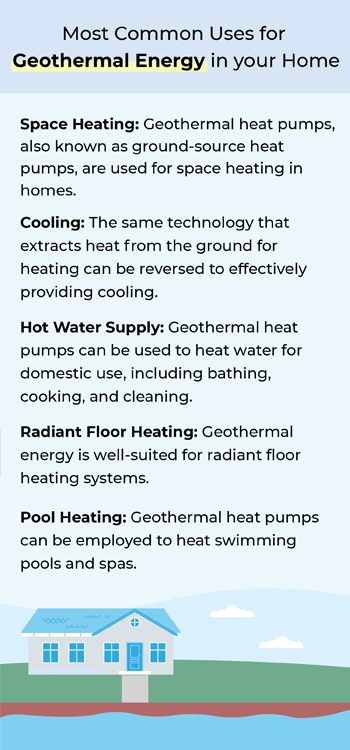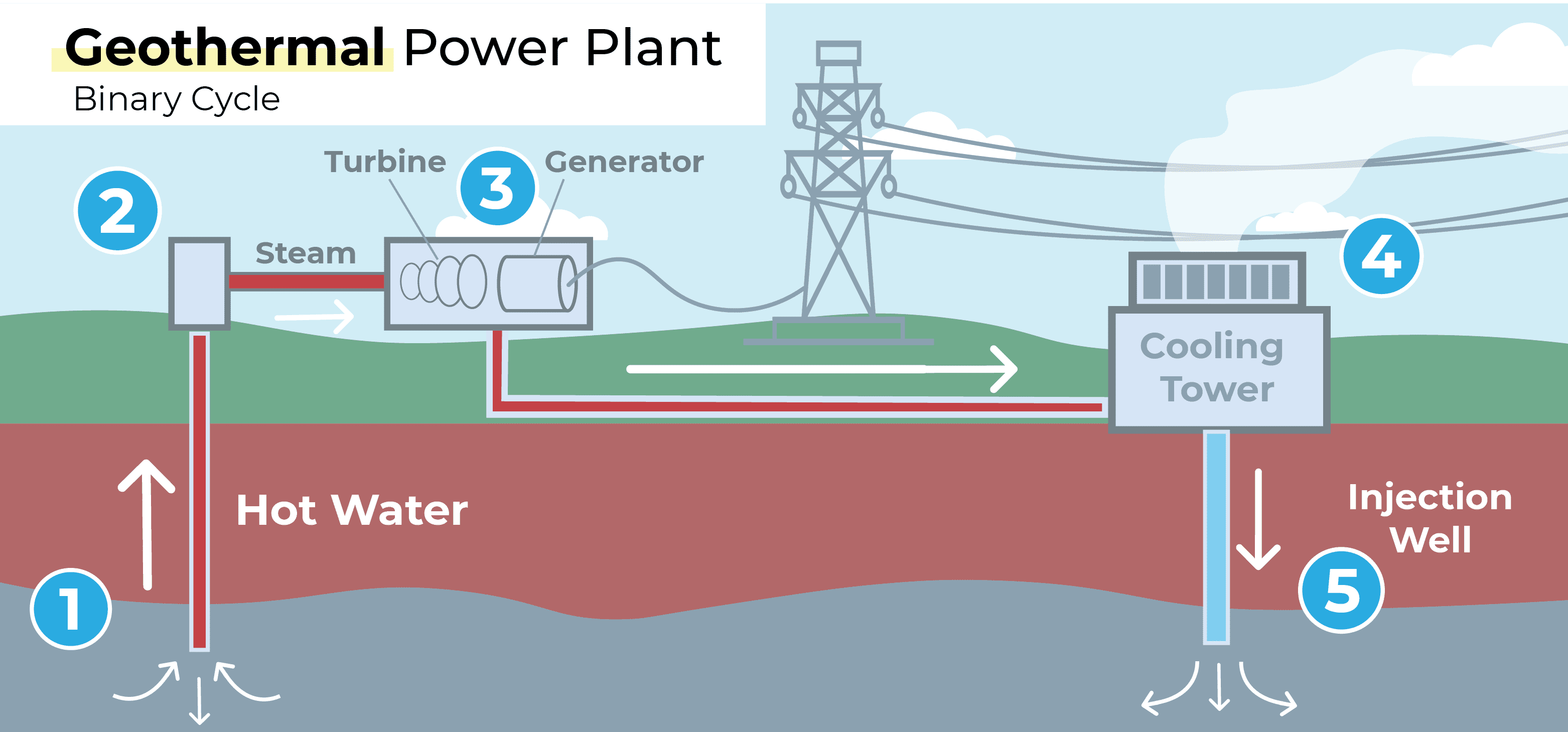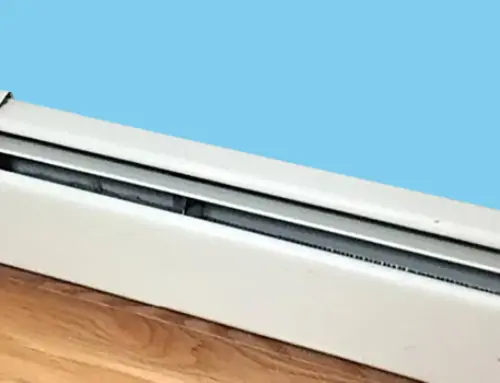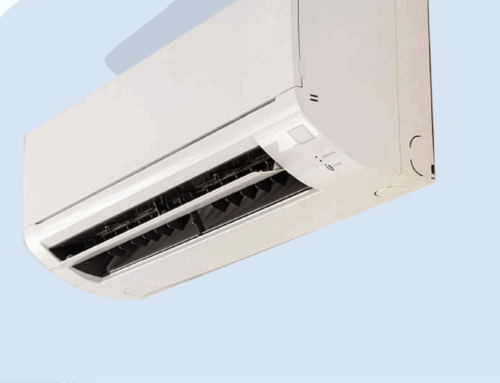How Geothermal Energy Works
by Jenna Mendez
4.4 min read
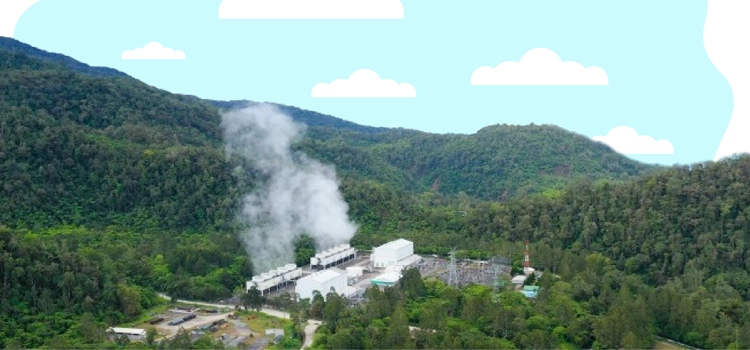
Are you curious to learn more about geothermal energy and how it works? You’re in the right place! Not only will we take a look at how geothermal energy works, but we’ll also explore the disadvantages and advantages of this energy source and answer some of your most pressing questions. Let’s dive in and learn more.
What is geothermal energy?
First, let’s break down what geothermal energy is. Geothermal energy is generated from the heat of the earth’s core which radiates outwards from the Earth’s crust. This heat comes from naturally decaying radioactive materials such as uranium and potassium which can be extracted to be used as energy. The amount of heat within about 33,000 feet of the Earth’s surface contains 50,000 times more energy than all the oil and natural gas sources in the world!
Did you know that geothermal energy can be used for human consumption? But how is geothermal energy extracted? At designated geothermal power plants, equipment is drilled a mile into the ground which removes hot water from the earth. The water is removed as vapor and if the temperature is high enough, this vapor can be used to power wind turbines. In the same way, the water vapor that’s produced from geothermal power plants can be used to generate electricity and power your home as well.
Is geothermal energy renewable?
Geothermal energy is a renewable energy resource, which means that it’s an unlimited resource that won’t run out! Geothermal energy is also naturally replenished as the earth’s inner core continues to produce heat in its natural cycle. Since geothermal energy produces vapor and steam that comes from the earth itself, it can also be considered clean energy. According to the U.S. Department of energy, geothermal heat pumps can be used just about anywhere in the U.S. because all areas have consistent shallow ground temperatures.
Geothermal energy pros and cons
Like every renewable energy resource, there are advantages and disadvantages of each. Some of the most common advantages of geothermal energy include:
- Low emissions from electrical generation – Geothermal power plants only release excess steam. This makes geothermal power plants an important contributor to the nation’s zero-carbon future because they release no gas emissions.
- No production restrictions – Geothermal power plants can produce electricity consistently. Because geothermal doesn’t rely on weather conditions, these plants can run 24/7.
- Rapid Evolution – Because of this energy source’s growing popularity, environmental scientists are choosing to study this renewable energy source more often. This also means that geothermal energy will continue to improve the process to extract this energy source.
Even though geothermal energy had numerous advantages, here are some of its most common disadvantages:
- It’s not Available Everywhere – In order to build energy plants, geothermal plants have to be built on top of reservoirs with tectonic plates. Internationally, these requirements are hard to come by.
- Could Cause of Earthquakes – Since geothermal plants have to dig into the earth to extract energy, this unstable ground created by these extracting practices can cause earthquakes.
- It can be Expensive – Geothermal heat pumps for your home can cost around $13,000 – $36,000 for a unit and installation. While your average gas heat pump can cost $4,500 – $8,000 for a unit and installation.
Geothermal power plants explained
Geothermal power plants use hydrothermal resources such as water and heat. These plants also require high temperatures of up to 300 degrees Freiheit. Geothermal power plants produce power in three basic systems:
Dry Steam Plants – These plants use steam that’s directly from reservoirs which drives a generator that produces electricity.
Flash Steam Plants – These plants take high-pressured hot water inside the earth’s core and convert it into steam. When the steam cools, the water used to make this steam is returned to the earth to be used again. Flash steam power plants are the most common plants in geothermal energy space.
Binary Cycle Plants – Lastly, in these power plants, hot geothermal fluid is sent to a heat exchanger where it is used to turn the second fluid into vapor. The vapor then powers a turbine, which produces electricity. After that, the vapor is cooled and turned back into liquid form before going back to the heat exchanger.
In the end, geothermal energy is an innovative way to produce electricity and be environmentally friendly when it comes to powering your home. Although this form of renewable energy has its drawbacks, with its low emissions, no production restrictions and rapid evolution, geothermal energy is sure to become the go-to renewable energy source of the future – so why not get on board today? We hoped you learned a lot about what makes geothermal energy so important and worthwhile!
Santanna Energy Services is a supplier of renewable energy solutions in the United States, providing services to Illinois, Indiana, Pennsylvania, Michigan, and Ohio. We provide a wide range of energy services and products to meet the needs of both residential and small business customers. Our mission is to provide innovative and cost-effective energy solutions that will help our customers achieve their energy goals. With over 35 years of experience, we are committed to creating life-long relationships by providing quality service to customers, communities, and employees.
Jenna Mendez is a Midwest native with lifelong roots in Illinois and time spent in Ohio during college, giving her a deep understanding of the Midwest region’s people, climate, and energy needs. She brings firsthand experience and local insight to topics that matter to Midwest homeowners, especially energy efficiency, sustainability, and home living. Jenna specializes in writing about eco-friendly living, all things Midwest, renewable energy, and practical ways to reduce energy costs. Jenna brings a trusted, and local hometown voice to every article she writes, helping readers live well, and sustainably, right where they are.


